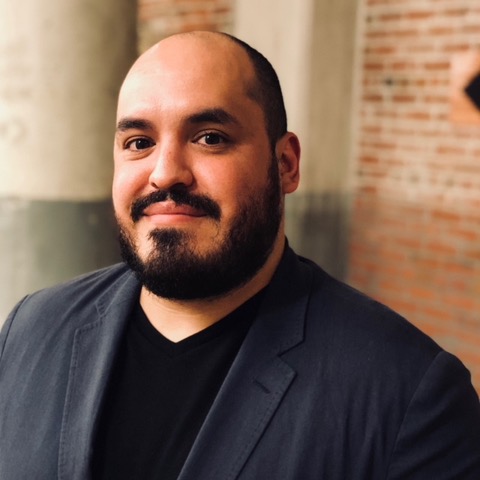These Massive Deals Just Changed The US Sports Betting Landscape

Penn National Gaming Plans Sports Betting Dominance With New Deals
Looking to cement itself as a premier gambling powerhouse, Penn National Gaming (PNG) announced a series of partnerships that could make it a leader in the sports betting industry.
On July 31, PNG struck multi-year partnership agreements with four marquee sports betting operators. Each company will have access to Penn National “skins” with the ability to operate online sports betting and online gambling, also known as iGaming.
The four companies are:
While specifics of the agreements have yet to be announced, the deals do not include r
etail sportsbooks. Terms of the deal designate Kambi as the company’s “National Service Provider” for retail operations.
Here is what Jon Kaplowitz, Penn National’s senior vice president of Interactive Gaming has to say:
“We’re pleased to be providing the top names in sports betting, iGaming and poker access to our company’s non-primary licenses to conduct these operations in exchange for a combination of upfront cash and equity, on-time market access fees, and ongoing revenue sharing.”
In addition to sports betting, each partner will also be able to own, operate, and brand real-money online poker and casino offerings in each state where Penn National operates.
Breaking down the Penn National sports betting deals
Courtesy of Penn National, here are details that outline key specifics including, economic terms, states covered, and equity position.
DraftKings
States Covered: Florida (1st skin), Indiana (3rd skin), Missouri (1st skin), Ohio (1st skin), Pennsylvania (1st skin), Texas (1st skin) and West Virginia (2nd skin)
Term of agreement: 10 years, subject to a ten-year extension
Key economic terms: Revenue share to Penn National based on net gaming revenue
PointsBet
States Covered: Indiana (2nd Skin), Louisiana (1st Skin), Missouri (1st Skin), Ohio (1st Skin) and West Virginia (3rd Skin)
Term of agreement: 20 years
Key economic terms: Revenue share to Penn National based on net gaming revenue
Equity Position: PIV will take a strategic equity stake of 5.28% in PointsBet, with an additional $2.5 million access fee for Ohio, based on certain conditions, payable in cash or equity at Penn National’s option. In addition, PIV will receive 10,372,549 options, exercisable for two years, to acquire additional shares of PointsBet
theScore
States Covered: Indiana (2nd skin), Iowa (2nd skin), Kansas (3rd skin), Louisiana (1st skin), Maine (3rd skin), Massachusetts (3rd skin), Michigan (3rd skin), Mississippi (1st skin), Missouri (2nd skin), Ohio (2nd skin) and Texas (2nd skin)
Term of agreement: 20 years
Key economic terms: Revenue share to Penn National based on net gaming revenue
Equity Position: PIV will take a strategic equity stake of 4.7% in theScore, with the potential for this stake to increase as additional market access fees become payable.
The Stars Group
States Covered: Illinois (1st skin), Indiana (1st skin), Kansas (2nd skin), New Mexico (2nd Skin), Maine (2nd skin), Massachusetts (2nd Skin), Michigan (2nd Skin), Ohio (1st Skin) and Texas (1st Skin)
Term of agreement: 20 years
Key economic terms: Upfront payment of $12.5 million payable cash, with an additional access fee of $5 million in cash for Texas-based on certain conditions; revenue share to Penn National based on net gaming revenue, with a one-time bonus based on net gaming revenue in 2023.
Where Kambi comes into play
In a major coup for Kambi, the company will provide online and retail sportsbook services for all future Penn National sportsbooks. The long-term agreement also means Penn National gets access to Kambi’s technology.
Here’s more from Kambi:
“Following a competitive selection process, Nasdaq-listed Penn National Gaming — will integrate the Kambi sportsbook platform ahead of an on-property and online rollout in jurisdictions with active sports betting legislation.”
With sports betting pending in at least eight states where Penn National operates, including West Virginia, Pennsylvania, Iowa, and Nevada, the agreement could not come at a better time.
Sports betting in Iowa and Indiana are due to launch in Q3 2019 at brick-and-mortar casinos with mobile wagering following in early 2020.
Regarding its deal with Penn, Kambi CEO Kristian Nylen said Kambi would provide the sports betting technology for Penn in Iowa and Indiana.
“It’s an honor for Kambi to be working with an organization of the size and stature of Penn National, and we look forward to helping them become a national leader in the US sports betting market in the comping years,” Nylen said. “Kambi’s strategy has always been to partner with tier one operators, particularly those that share out vision and passion for sports and sports wagering.”
The Iowa Racing and Gaming Commission recently approved rules and regulations to govern sports betting, which is expected to launch August 15.
Eighteen of the state’s 19 casinos were approved for licenses during a recent gaming commission meeting.
What’s in Penn National’s current portfolio
Penn National already has a gigantic footprint in the gaming space. Adding four more partnerships will expand its existing portfolio to even greater heights.
Penn currently has:
- 41 casinos
- 19 jurisdictions
- 50,500 gaming machines
- 1,300 table games
- 8,800 hotel rooms
“Sports betting represents an exciting new growth opportunity for Penn National,” Kaplowitz said. “Our skin agreements — will help fund the cost of launching and maintaining our primary sports betting and iGaming operations both by way of the upfront consideration and the long term revenue sharing arrangments, which are consistent with industry standards and subject to minimum guarantees.”
Change in Penn National Gaming leadership
But the news doesn’t stop there.
On Thursday, PNG announced that CEO Tim Wilmott would retire at the end of the year. Current COO Jay Snowden, who joined Penn in 2011, will be taking over following Wilmott’s departure.
During Wilmott’s time as CEO, which began in 2013, Penn National not only doubled its annual revenue, but it also acquired several new properties in Louisiana, Michigan, and Pennsylvania.
Wilmott joined Penn in 2008 when its annual revenue was roughly $2.4 billion. Now, revenue for 2019 is expected to reach $5 billion.
At the end of Wilmott’s six-year stint as CEO, he helped the company navigate a pair of lucrative acquisitions including a $2.8 billion buyout of Pinnacle Entertainment in October. Penn was also able to closeout deals involving Margaritaville in Louisiana and a $1 billion agreement to acquire Greektown Casino in Detroit.
Here’s what Wilmott had to say:
“It was important to leave when we were well
-positioned to continue to grow our geographic footprint. We also have the ability to take advantage of sports betting. We have a strong management team and it was important to turn the keys over to someone I trust. Jay and I worked closely the last eight years.”
Sports betting at a glance
As mentioned, Iowa and (soon to be Indiana) will join a growing list of states with legal sports betting:
- Nevada
- New Jersey
- Delaware
- West Virginia
- Mississippi
- Rhode Island
- New Mexico
- Arkansas
- New York
- Washington, DC – pending launch in late 2019 – early 2020
Earnings per share for Penn National were down 13 cents in the quarter ending June 30, going from 57 cents a year ago to 44 cents.
Revenue grew 1.6 percent to $1.3 billion.










